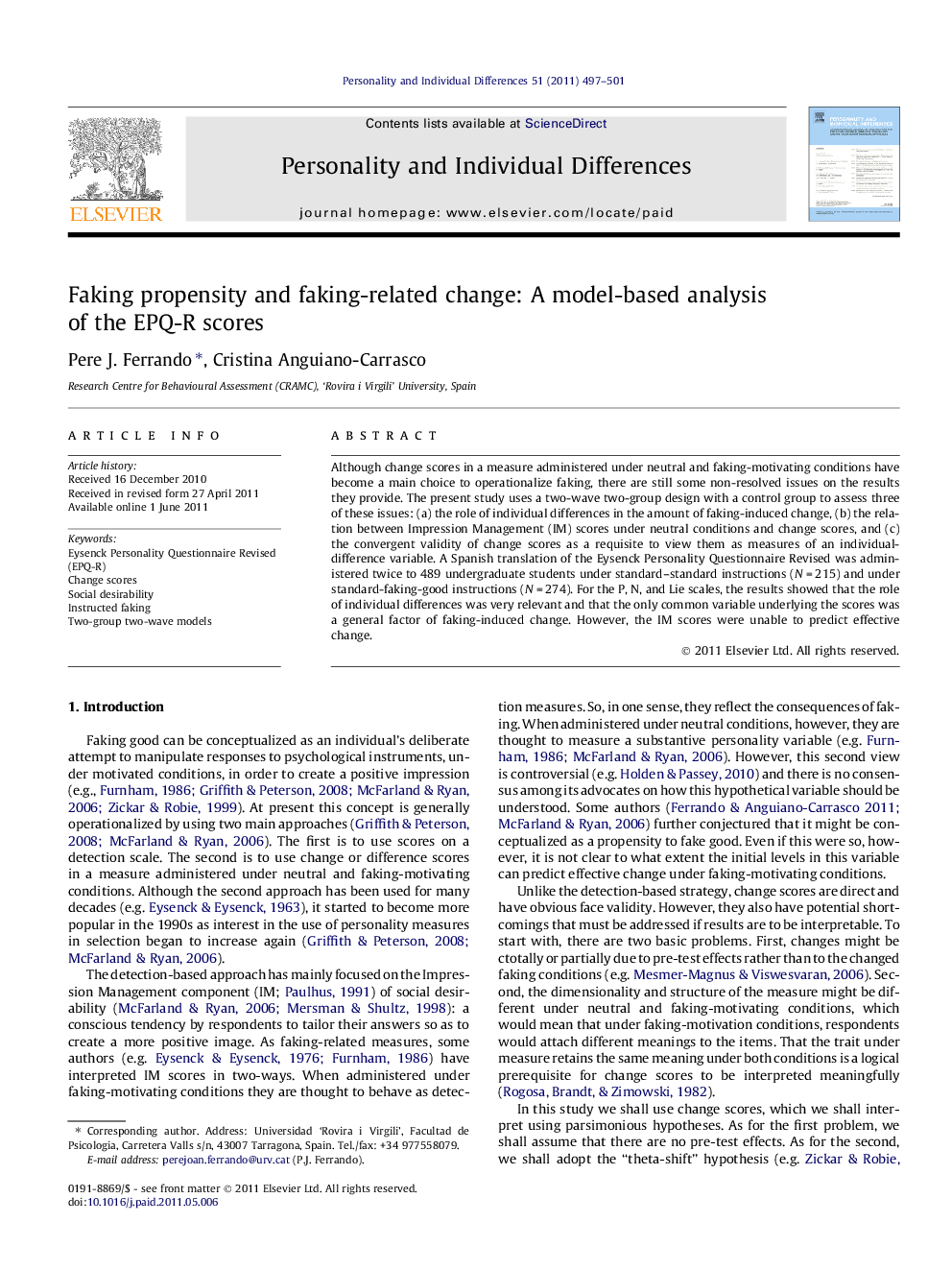| Article ID | Journal | Published Year | Pages | File Type |
|---|---|---|---|---|
| 891505 | Personality and Individual Differences | 2011 | 5 Pages |
Although change scores in a measure administered under neutral and faking-motivating conditions have become a main choice to operationalize faking, there are still some non-resolved issues on the results they provide. The present study uses a two-wave two-group design with a control group to assess three of these issues: (a) the role of individual differences in the amount of faking-induced change, (b) the relation between Impression Management (IM) scores under neutral conditions and change scores, and (c) the convergent validity of change scores as a requisite to view them as measures of an individual-difference variable. A Spanish translation of the Eysenck Personality Questionnaire Revised was administered twice to 489 undergraduate students under standard–standard instructions (N = 215) and under standard-faking-good instructions (N = 274). For the P, N, and Lie scales, the results showed that the role of individual differences was very relevant and that the only common variable underlying the scores was a general factor of faking-induced change. However, the IM scores were unable to predict effective change.
► This study used a two-wave two-group design with a control group. ► We assessed the effect of faking-inducing instructions in the amount of change. ► Individual differences were very relevant in the amount of observed change. ► Change scores behaved as an individual-differences variable. ► Impression Management scores were unable to predict effective change.
